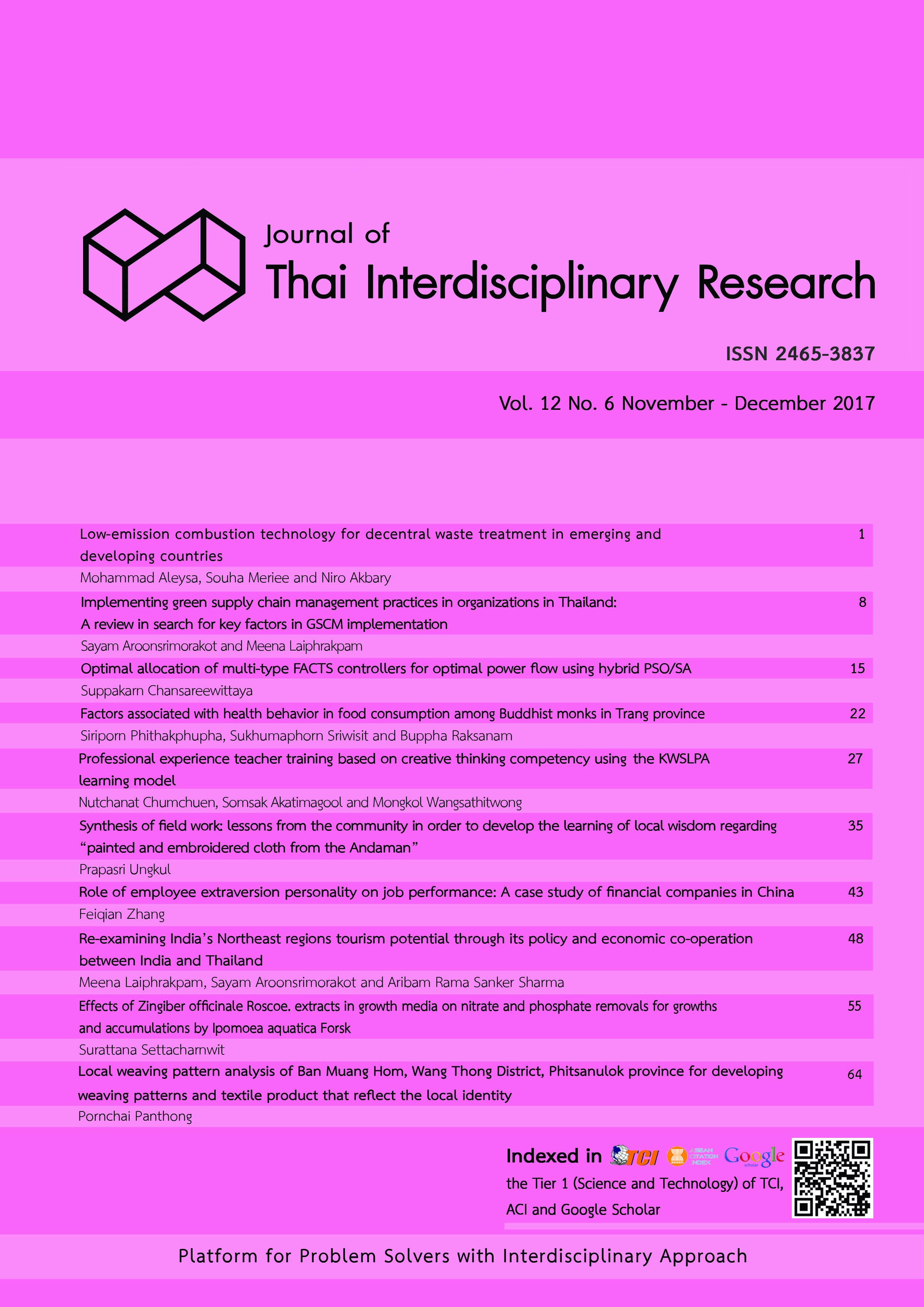Factors associated with health behavior in food consumption among Buddhist monks in Trang province
Main Article Content
Abstract
This survey research aimed to examine the association of personal, knowledge and attitude factors with health behavior in food consumption among Buddhist monks in Trang province. Three hundred and one Buddhist monks were asked to complete self-administered questionnaires during November to December 2015. Descriptive statistics and Chi-square were used for data analysis. The results showed that most of the subjects aged between 21 and 40 years, had normal BMI and stayed in non-health promoting temples. They had no chronic disease, took two meals, morning and noon from food offered by people. They had high level of knowledge (11.87±2.31), good in attitude and health behavior in food consumption (3.80±0.39 and 2.86±0.36, respectively). Personal factors on chronic disease were statistically associated with health behavior in food consumption among Buddhist monks in health and non-health promoting temples. Buddhist monks who were in health and non-health promoting temples recognized food information by themselves and other people were statistically associated with health behavior in food consumption knowledge (p-value < 0.05). Knowledge and attitude were statistically associated with health behavior in food consumption among Buddhist monks (p-value < 0.01). These findings could be a guideline for developing practical programs to further promote Buddhist Monks’ health behavior in food consumption.


